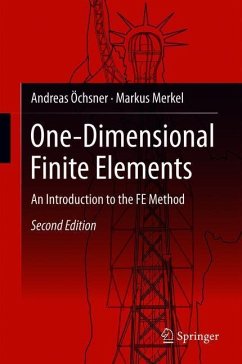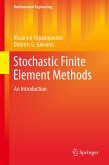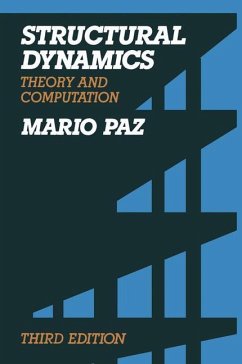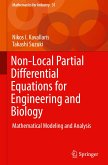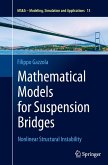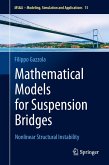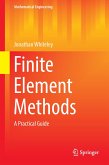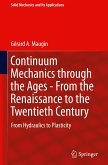This textbook presents finite element methods using exclusively one-dimensional elements. It presents the complex methodology in an easily understandable but mathematically correct fashion. The approach of one-dimensional elements enables the reader to focus on the understanding of the principles of basic and advanced mechanical problems. The reader will easily understand the assumptions and limitations of mechanical modeling as well as the underlying physics without struggling with complex mathematics. Although the description is easy, it remains scientifically correct.
The approach using only one-dimensional elements covers not only standard problems but allows also for advanced topics such as plasticity or the mechanics of composite materials. Many examples illustrate the concepts and problems at the end of every chapter help to familiarize with the topics. Each chapter also includes a few exercise problems, with short answers provided at the end of the book.
The second edition appears with a complete revision of all figures. It also presents a complete new chapter special elements and added the thermal conduction into the analysis of rod elements. The principle of virtual work has also been introduced for the derivation of the finite-element principal equation.
The approach using only one-dimensional elements covers not only standard problems but allows also for advanced topics such as plasticity or the mechanics of composite materials. Many examples illustrate the concepts and problems at the end of every chapter help to familiarize with the topics. Each chapter also includes a few exercise problems, with short answers provided at the end of the book.
The second edition appears with a complete revision of all figures. It also presents a complete new chapter special elements and added the thermal conduction into the analysis of rod elements. The principle of virtual work has also been introduced for the derivation of the finite-element principal equation.
From the reviews:
"As its title describes, this book is about the finite element method applied to one-dimensional problems. ... several problems of interest are indeed modeled using a single space variable. This book should appeal to the mechanical engineering community." (Alexandre L. Madureira, Mathematical Reviews, January, 2014)
"This book is an excellent addition to course resources on finite elements. ... Each chapter includes worked examples and a few exercise problems. Short answers for the exercises, provided at the end of the book, will be helpful to students. A valuable course resource for students in mechanical, civil, aerospace, and other engineering curricula and a useful acquisition for academic libraries. Summing Up: Highly recommended. Upper-division undergraduates, graduate students, practicing engineers." (R. Kolar, Choice, Vol. 51 (1), September, 2013)
"As its title describes, this book is about the finite element method applied to one-dimensional problems. ... several problems of interest are indeed modeled using a single space variable. This book should appeal to the mechanical engineering community." (Alexandre L. Madureira, Mathematical Reviews, January, 2014)
"This book is an excellent addition to course resources on finite elements. ... Each chapter includes worked examples and a few exercise problems. Short answers for the exercises, provided at the end of the book, will be helpful to students. A valuable course resource for students in mechanical, civil, aerospace, and other engineering curricula and a useful acquisition for academic libraries. Summing Up: Highly recommended. Upper-division undergraduates, graduate students, practicing engineers." (R. Kolar, Choice, Vol. 51 (1), September, 2013)

